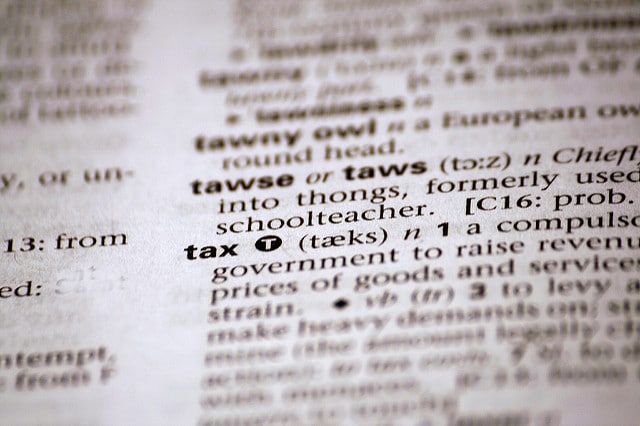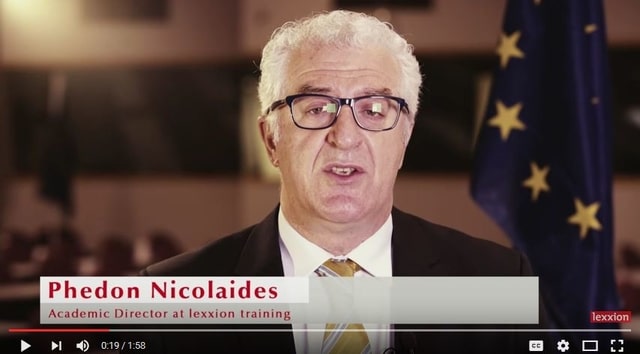A company that applies for State aid is considered to acquire a right to that aid when assurances it has received from the granting authority can be enforced in court. The price of land can be reduced by the cost that a new owner would expend to make the land usable. Introduction In decision SA.40448, the Commission assessed aid […]
State Aid Law
Blog
State Aid Uncovered Blog
In Lexxion’s State Aid Uncovered blog, Prof. Phedon Nicolaides publishes weekly critical analyses of recent State aid judgments and decisions. Each post presents the key points of a court judgment or EU Commission decision, places it in the context of similar case law or practice, assesses the underlying reasoning and highlights any inconsistencies or contradictions.
Guest contributions from other State aid experts will also be published on the blog at irregular intervals to complement the content of the blog posts.
9. May 2017 |
State Aid Uncovered
by Phedon Nicolaides
Insurance funds contributed by banks become state resources if they are managed by public agencies. Sale of non-performing loans at market prices does not involve State aid. Introduction Since 1 January 2016, the resolution financial institutions in Europe has been subject to stricter rules. The institutions which are established in the Eurozone fall with the jurisdiction of the Single […]
3. May 2017 |
State Aid Uncovered
by Phedon Nicolaides
Turnover taxes should be levied at a single rate. Introduction This is the fourth case involving turnover taxes that have been declared to be incompatible with the internal market [see Commission decision 2017/329].[1] A brief summary was published here on 13 December 2016 [http://stateaidhub.eu/blogs/stateaiduncovered/post/7697]. The reasoning of the Commission follows closely that of the other cases. However, what makes this case […]
1. May 2017 |
Guest State Aid Blog
by Lexxion Publisher
Find below the court’s diary for all State aid cases this month. Would you like to write a comment on one of them? Please don’t hesitate and get in touch with us ([email protected]), we are happy to publish your comment on the blog. Thursday 18/05/2017 Judgment in case C-150/16 – Fondul Proprietatea vs Complexul Energetic Oltenia SA (Court of Justice – Fifth Chamber) […]
26. April 2017 |
State Aid Uncovered
by Phedon Nicolaides
A short note on the previous blog post on State aid control in the UK after its withdrawal from the EU. A few weeks ago, I wrote an article on State aid control in the UK after its withdrawal from the European Union [http://stateaidhub.eu/blogs/stateaiduncovered/post/8330]. In that article I suggested that the UK would maintain the same or a similar […]
25. April 2017 |
State Aid Uncovered
by Phedon Nicolaides
A nominal price may be charged for genuine non-economic services as long as it supports the achievement of the non-economic objective and covers only a small part of total costs. Introduction Germany notified two measures of support for nature conservation in Saxony-Anhalt. Measure 1 [SA.45645] concerned projects of nature conservation and landscape maintenance.[1] Measure 2 [SA.46073] concerned aid to associations […]
18. April 2017 |
State Aid Uncovered
by Phedon Nicolaides
Compliance with public service obligations imposed on a provider of services of general economic interest should not be left to the discretion of that provider. Introduction Last week’s article examined a public service obligation for providing maritime links to Corsica (view it here: http://stateaidhub.eu/blogs/stateaiduncovered/post/8370). This week’s article reviews a similar obligation for maritime links to the neighbouring island of Sardinia. […]
11. April 2017 |
State Aid Uncovered
by Phedon Nicolaides
The scope of public service obligations must be proportional to the identified market failure. Introduction On 1 March 2017, the General Court dismissed the application of Societe Nationale Maritime Corse Mediterranee [SNCM] against the Commission [case T-454/13, SNCM v Commission].[1] The Commission had found in decision 2013/435 that SNCM received incompatible State aid that had to be recovered. SNCM carried […]
4. April 2017 |
State Aid Uncovered
by Phedon Nicolaides
The UK will “take back control” over State aid. With it will come the challenge of following EU law and practice. Introduction Last June I wrote an article on how the withdrawal of the UK from the EU could affect the application of State aid rules in the UK. The article concluded with the following prediction. “The UK will soon […]
2. April 2017 |
Guest State Aid Blog
by Lexxion Publisher
Find below the court’s diary for all State aid cases this month. Would you like to write a comment on one of them? Please don’t hesitate and get in touch with us ([email protected]), we are happy to publish your comment on the blog. Thursday 06/04/2017 Order in case T-101/16 – Klausner Holz Niedersachsen GmbH v European Commission (General Court – Second […]
6. September 2016 |
State Aid Uncovered
by Phedon Nicolaides
This is the third and last article in a series of three that reviews the Commission’s Notice on the Notion of State Aid.* Last week’s article analysed the concepts of advantage and selectivity. This week the focus is on the last two constituent elements of the notion of State aid: affectation of cross-border trade and distortion of competition. This article […]
30. August 2016 |
State Aid Uncovered
by Phedon Nicolaides
This is the second article in a series of three that reviews the Commission’s Notice on the Notion of State Aid.* Last week’s article focused on the concepts of economic activity and state resources.** Next week’s article will conclude with a presentation of the conditions under which trade is affected and competition distorted and an analysis of the application of […]
23. August 2016 |
State Aid Uncovered
by Phedon Nicolaides
The Notice provides a thorough review of the case law and the decisional practice of the Commission. Introduction After more than two years of deliberations, the Commission Notice on the Notion of State Aid was published in the Official Journal on 19 July 2016.[1] The Notice presents “the Commission’s understanding of Article 107(1) of the Treaty, as interpreted by the […]
16. August 2016 |
State Aid Uncovered
by Phedon Nicolaides
Member States must publish the aid measures they adopt on the basis of the GBER. Failure to publish prevents them from being exempted from notification and renders any aid illegal. Introduction On 21 July 2016, the Court of Justice delivered a judgment in response to a request for a preliminary ruling in case C-493/14, Dilly’s Wellnesshotel v Finanzamt Linz.[1] An […]
4. August 2016 |
State Aid Uncovered
by Lexxion Publisher
What is State aid? Why do I need to be concerned about State aid? These and many more basic questions will be answered in our videos on YouTube. Make sure to visit us! After Phedon Nicolaides has given us examples of “good aid”, today he answers the question “What can I do if my measure contains State aid?”. View the […]
2. August 2016 |
State Aid Uncovered
by Phedon Nicolaides
Tax rulings on transfer pricing have to approximate market-based outcomes. Introduction Twenty years ago, the European Commission initiated discussion on how State aid rules could apply to direct taxation. In 1998 it adopted its Notice on direct business taxation. At about the same time the Commission launched several formal investigations which culminated in negative decisions. In 2013 and 2014, […]
28. July 2016 |
State Aid Uncovered
by Lexxion Publisher
What is State aid? Why do I need to be concerned about State aid? These and many more basic questions will be answered in our videos on YouTube. Make sure to visit us! 7 weeks ago we started our new State aid journey on YouTube and thank you for viewing our videos, commenting and subscribing to our channel! Today […]
26. July 2016 |
State Aid Uncovered
by Phedon Nicolaides
The existence of market failure is not necessary for aid to be declared compatible under Article 107(3). Market failure does not mean that the market is completely unable to supply a good or service. State aid aiming to remedy market failure may be compatible with the internal market even if it has a negative impact on some market operators. […]
21. July 2016 |
State Aid Uncovered
by Lexxion Publisher
What is State aid? Why do I need to be concerned about State aid? These and many more basic questions will be answered in our videos on YouTube. Make sure to visit us! Last week Phedon Nicolaides gave examples of „good aid“. Today he explains which types of State aid are compatible with the internal market, such as environmental aid, regional development […]
18. July 2016 |
State Aid Uncovered
by Phedon Nicolaides
The risk of relocation outside the EU is not accepted as a justification for the granting of State aid. Introduction The European Commission has had to assess many measures of State aid to producers of electricity from renewable energy sources [RES producers or “green” electricity producers] and to intensive users of electricity [EIUs]. The former have benefitted from investment […]


















